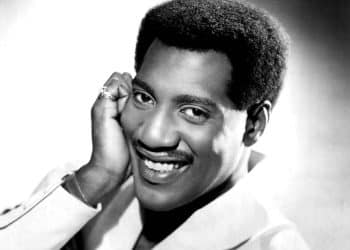(Source: https://www.pexels.com/de-de/foto/person-die-braune-und-schwarze-gitarre-halt-
33597/)
10 Tips for Learning How to Play an
Instrument
There are many benefits to learning how to play an instrument. It trains our ability to listen,
improves our memory and muscle coordination. The earlier in life you start, the more
powerful these effects are. But even as an adult, you can enjoy many mental and physical
benefits when you start practicing and making music on a regular basis. Starting something
new as an adult can be challenging, but it’s not impossible , and it’s most definitely worth it.
Here are 10 tips for learning how to play a new instrument.
Choose Music You Love
If you ever had music lessons as a child, you probably weren’t given a lot of freedom when it
came to choosing the music you would want to play. Making children learn the classics
definitely has educational value, but it might not exactly raise motivation. Choosing to learn
music you like has two benefits:
● it is more enjoyable
● you are familiar with the song
Reading sheet music can be difficult, if you don’t have any idea on what the song is
supposed to sound like. That can be helpful, when you are trying to learn to interpret
the notes rather than knowing the right tempo by heart. But being able to play a song
and making it sound just the way you are used to can be a powerful motivator.
Luckily, there are many sources for instructional materials and sheet music. This online
service allows you to pick any song you like and turn it into the matching guitar chords.
For people who have been teaching themselves, as many have during the pandemic,
websites like this are gold.
Set Goals
Take a second to think about your goals. If you keep specific targets in mind, it is much
easier to evaluate your progression. Is your goal to be able to play a piano piece just by
reading the sheet music? Or do you want to take a more freestyle approach and aim at
improvisation? For one, learning tabs and scales is necessary, for the other it might be more
helpful just to play around and learn by doing.
More importantly: Set yourself realistic and measurable goals. Playing an instrument is a
skill, and it takes time to practice and get better. If your goals aren’t achievable, because
they are too unrealistic, you will kill your fun and motivation. Start with small steps, like being
able to play four bars of a song by next week.
Consistent Practice
You cannot skip out on practicing and hope to get better anyway. Discipline is easier
when you dedicate a specific time slot in your weekly schedule to learning the instrument.
Start with one or two sessions of 30 minutes. It is better to learn in smaller chunks of 15
minutes on multiple days rather than have one long session once. This way you keep
refreshing the things you have learned.
Exercise Chunks
If you are learning how to play a specific piece of music, separate it into chunks. It is easier
to focus on a small part and learn how to play it perfectly. Playing a piece of music measure-
by-measure automatically creates a high focus and many repetitions, which helps new knowledge to settle. The necessary finger movements to play certain notes and chords will
become muscle memory over time.
Use a Metronome
Finding the right notes or chords is just one of the challenges of learning a new instrument.
When you want to play sheet music or play with others, you need to learn timing. If you play
by yourself, you can easily play too fast or slow without noticing. The metronome helps
you stay on track.
Record Yourself
When you are concentrating on how to move your fingers or blowing air into a wind
instrument, it is not always easy to actually hear what the result sounds like. By recording
your practice sessions, you can listen back to the recording and find out which parts
need improving or how much better you have gotten.
Listen to Music
There are a lot of helpful music genres for learning. That usually applies to music you listen
to when you are studying. But it is also true when we are talking about learning to play an
instrument. Classical music can be great for learning basics. It is often paced very
carefully and has many repetitive parts. It will teach you about repeating motifs and the
structure of music pieces.
Alternatively, jazz can help you get a better feel for the way chords and notes interact
with each other. It helps you get an understanding of the single components and the many
ways they can be pleasingly rearranged.
Study Music Theory & History
Music theory teaches you about the way music works structurally, which helps with
recognizing patterns and compositions. This, in turn, makes it easier to follow and
anticipate melodies in the music pieces you want to learn. Music history teaches you about
the origin, context, and meaning behind music styles. It helps you to interpret and write
music yourself.
Performing
Performing might not be your end goal, but it is a fun way to test your skills and set
yourself goals. If you plan to play something for friends on a specific date, you have no
choice but to practice. It helps to motivate you and take learning just a bit more seriously.
Plus, getting some positive feedback is always helpful.
Patience
Finally, Patience is key. Give yourself time and enough practice to learn a new skill. Be
kind and don’t expect too much too soon. Disappointment and frustration are the killers of
motivation and drive. If you are feeling frustrated, check in on yourself and examine if your
expectations were realistic. Remind yourself that playing any instrument is a skill that
takes years to master.
Since 2005, Singersroom has been the voice of R&B around the world. Connect with us via social media below.






